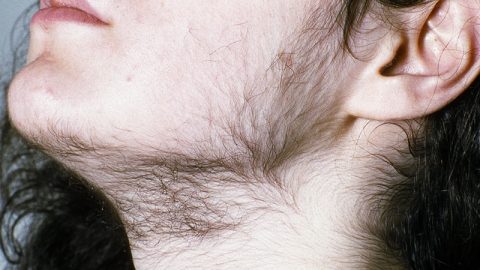Ovarian surgery to cure PCOS
Does ovarian surgery cure PCOS?
Polycystic ovary syndrome (PCOS), is caused because of the hormonal imbalance that restricts the process of ovulation. Hirsutism, acne, weight gain or androgenic alopecia are the other Polycystic ovary syndrome symptoms are the outcomes of increased production in level of male hormone, called androgens, in women with PCOS.
Polycystic ovary syndrome (PCOS) is a complicated hormonal disorder that affects many different body systems. Besides disturbing your menstrual cycle and fertility, a woman with PCOS also has an increased risk of heart disease and diabetes as well after menopause. If the medications are not showing any results, your doctor might suggest you get the ovarian surgery to cure PCOS.
Although traditionally ovarian surgery to cure PCOS was once the main treatment for Polycystic ovary syndrome (PCOS), but gradually with the advancement in the medication and treatments its importance has decreased today as the ovarian surgery can damage your ovaries. Before getting an ovarian surgery , several medical treatments should be taken or attempted. These include weight loss, birth control pills, spironolactone, and various polycystic ovary syndrome symptom management. Ovarian Surgery to cure PCOS is only recommended once these treatments are no longer effective or abided.
Polycystic ovary syndrome symptoms increase the risk of developing other health issues or diseases over time, like diabetes, high Blood pressure, high cholesterol, heart disease and endometrial hyperplasia.
Ovarian surgery to cure PCOS is an option for severely symptomatic women with PCOS and who do not want future pregnancies. Ovarian surgery to cure PCOS is a surgical treatment that can trigger ovulation in women who have severe polycystic ovary syndrome (PCOS). Electrocautery or a laser is used to abolish the parts of the ovaries. This ovarian surgery is not used commonly. But it can be an option for women with PCOS who are unable to ovulate even after doing regular exercise, losing weight, following a healthy diet and taking fertility medicines as well. By getting ovarian surgery the ovaries may bring back regular ovulation cycles. But the problem of polycystic ovary syndrome (PCOS) has no enduring solution.
What are the benefits of ovarian surgery?
As Polycystic ovary syndrome (PCOS) is a lifetime problem to which there is no permanent solution. But this procedure of ovarian surgery to cure PCOS restores the menstrual cycle of a woman with PCOS and help her ovulate. About 15% of women get pregnant after ovarian surgery. Some women still may not have regular cycles and can cause a menopause after ovarian surgery. Others may have other fertility glitches (such as blocked tubes or a low sperm count) that can stop pregnancy.
Ovarian surgery to cure PCOS is a one-time treatment contrasting to the fertility medicines that have to be taken regularly. Still, the benefits of ovarian surgery might treat the problem for a while that too in certain cases, but this surgical treatment can never result in a permanent solution. For some women with PCOS, ovarian surgery will not fix the problem of irregular menstrual cycle and ovulation, even temporarily. But, can help a woman with PCOS to respond better to fertility medicines.
What are the risks of ovarian surgery?
The decision to get ovarian surgery should not be made casually because complications from ovarian surgery are sporadic, some can be very serious. Ovarian surgery can cause injury to the bowel, bladder, and blood vessels. Rarely, but there is a risk of death. There is also a risk of fertility. If there is too much damage to the ovary all through the ovarian surgery procedure, a woman may enter menopause at a younger age than anticipated. After the surgery, adhesion (scarring) can happen between the ovaries and the fallopian tubes will make it hard to get pregnant.
If you already have children or you are not wanting to have children then you can consider getting ovarian surgery. Whereas your ovaries are responsible for the increased level of androgen production but getting ovarian surgery will not cure PCOS. However, it might reduce the levels of androgen production which in return can result in curing some of the polycystic ovary syndrome symptoms. Polycystic ovary syndrome (PCOS) is more than an ovarian dysfunction and disturbs other organs and hormonal systems. Ovarian surgery will help reduce your polycystic ovary syndrome symptoms depending on the level of severity of your symptoms and which organs and hormones are getting affected by the symptoms. If you are willing to get ovarian surgery to cure PCOS, evaluate all of your non-surgical treatments before with your doctor and then pursue go for a surgical procedure.
Treating PCOS With Surgery
There are two types of ovarian surgery to cure PCOS used: laparoscopic ovarian surgery and ovarian block resection. Laparoscopic ovarian surgery customs electrocautery or a laser to abolish the parts of the ovary. By abolishing the parts of the ovary, the procedure of ovulation can be triggered.
An ovarian block resection is the surgical removal of part of the ovary, which is alleged to help regulate the menstrual cycle and promote normal ovulation. Most of the doctors strongly acclaim against having block resection because of the risk of scarring on the ovary. It is rarely used for treatments now. If the process of treatment is suggested, it is certainly worth getting a second opinion.
According to one of the most experienced gynecologists if you had PCOS or you have overcome your polycystic ovary syndrome symptoms, your menstrual dysfunction, overcome your problem of pregnancy, overcome the phase of getting pregnant you need to get an annual check-up to avoid the repetition of polycystic ovary syndrome (PCOS) after you have reached an age of menopause.
Ovarian surgery to cure PCOS is not a good solution because ovaries are not the basic problem. The ovaries are just the manifestation of what the original problem is and therefore removing ovaries or uterus is not going to cure the complications which are going to occur later like the complications of metabolic syndrome. By the ovarian surgery, you may stop bleeding, you can become menopausal, but being menopausal at an early age is disastrous, it has many implications. As the problem of PCOS is a life-long problem it will continue, removing the ovaries will not cure the problem.
There have been circumstances where some women have had regular menstrual cycles in the months following surgery and even some pregnancies. Generally speaking, the risk of adhesions or scar tissue on the ovary is far greater than the percentage of women who achieved a pregnancy after ovarian drilling.














